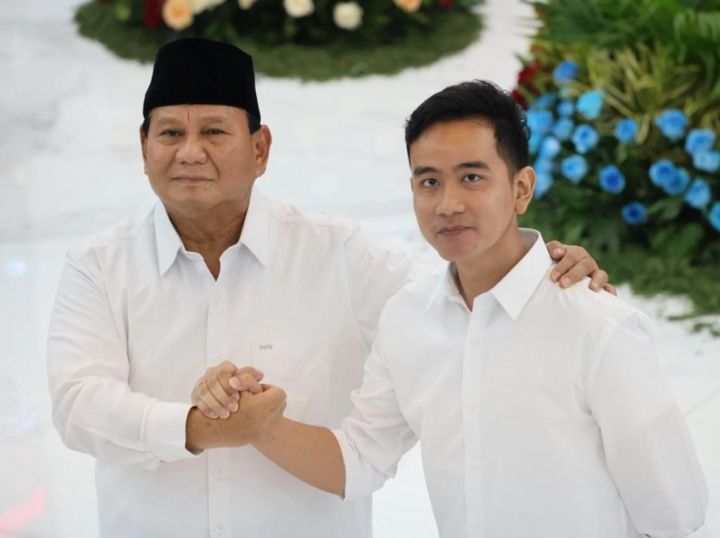CampusNet – Indonesia has undergone significant political, economic, and social transformations since the fall of the New Order (Orde Baru) in 1998. The regime, led by President Suharto for over three decades, was marked by authoritarian rule, military dominance, and rapid economic development. However, it also faced criticism for human rights violations, political repression, and corruption.
Today, Indonesia operates under a democratic system, yet concerns remain about political stability, military influence, and governance. This article critically compares the New Order and present-day Indonesia. Highlighting key aspects such as governance, civil liberties, economic policies, and military influence.
Governance and Political Structure
Under the New Order, Indonesia was ruled under a centralized, authoritarian regime. The government tightly controlled political opposition, with Golkar as the dominant party. Elections were held, but they were largely ceremonial, with the ruling party ensuring Suharto’s continued presidency.
In contrast, post-Reformasi Indonesia has embraced a multi-party democratic system. Allowing for presidential elections and decentralization of power to regional governments. However, modern challenges such as political oligarchy, corruption, and vote-buying indicate that while democracy has expanded, it remains flawed.
Civil Liberties and Human Rights
The New Order was notorious for its suppression of political dissent. Critics of the regime faced imprisonment, forced disappearances, and media censorship. The press operated under strict government control, and public discourse was limited. Since Reformasi, Indonesia has seen significant improvements in freedom of speech and media independence. Citizens can openly criticize the government, and human rights organizations operate with fewer restrictions. However, recent concerns about digital surveillance, criminalization of activists under defamation laws, and the increasing influence of religious conservatism indicate that civil liberties are still under threat.
Economic Policies: Stability vs. Inequality
One of the strongest legacies of the New Order was its economic development. Suharto’s administration focused on rapid industrialization, foreign investment, and infrastructure projects, leading to high economic growth rates. However, this progress came at the cost of crony capitalism, where wealth was concentrated among elites close to the regime. The Asian Financial Crisis of 1997 exposed the fragility of this economic model, leading to widespread poverty and unrest.
In present-day Indonesia, economic growth continues, driven by a more open market and technological innovation. The government has invested in digital economies, infrastructure, and social welfare programs. Nevertheless, income inequality, labor exploitation, and reliance on natural resource extraction remain significant challenges. Corruption, although less overt than in the Suharto era, still hampers economic development.
Military Influence and the Revision of TNI’s Role
During the New Order, the military (ABRI, now TNI) played a dual function (Dwifungsi), controlling both security and civilian governance. Military officers held key bureaucratic and political positions, and any opposition was swiftly silenced. While Reformasi led to the separation of the military from politics, recent policies—such as the revision of the TNI Law allowing active military officers to hold civilian roles—raise concerns about the potential return of military involvement in governance.
The recent revision of the TNI Law has reignited debates over the military’s role in Indonesian politics. Critics argue that allowing active-duty military personnel to hold civilian government positions undermines democratic principles and risks reversing the reforms achieved since 1998. Supporters, however, claim that the military’s expertise can contribute positively to governance. The challenge lies in ensuring that this expanded role does not erode civilian supremacy over the military, which was a hallmark of the New Order.
While Indonesia has made substantial progress since the fall of the New Order, many of its historical challenges persist in another forms. Democracy has replaced authoritarian rule, but political corruption and elite dominance remain prevalent. Civil liberties have expanded, yet threats to press freedom and activism still exist. Economic growth continues, but inequality and corruption hinder its full potential. Moreover, military influence, though reduced, is showing signs of resurgence.
The comparison between the New Order and present-day Indonesia highlights that while authoritarianism has been formally dismantled, its remnants linger in governance, politics, and society. Indonesia’s future depends on whether its democratic institutions can address these persistent challenges without backsliding into old patterns of control and suppression.
With the incoming leadership of Prabowo Subianto and Gibran Rakabuming Raka, concerns about the trajectory of Indonesia’s democracy grow stronger. Prabowo’s military background and past human rights controversies raise fears of increased militarization in governance, while Gibran’s rapid political ascent reflects the entrenchment of dynastic politics. If unchecked, these factors could weaken Indonesia’s democratic institutions, allowing for a return to authoritarian-style leadership under the guise of stability and progress. The challenge ahead lies in ensuring that Indonesia remains committed to the democratic values and reforms that were hard-won after the fall of the New Order.



